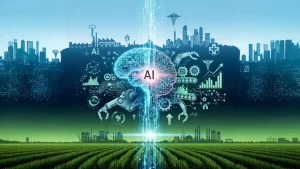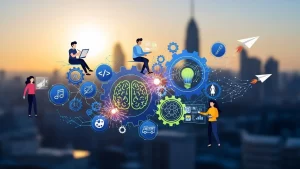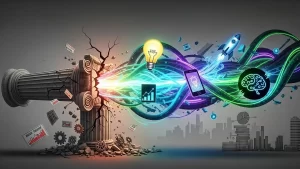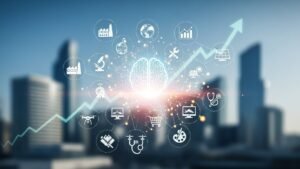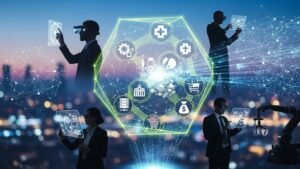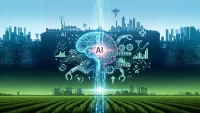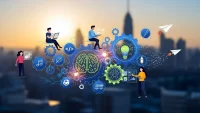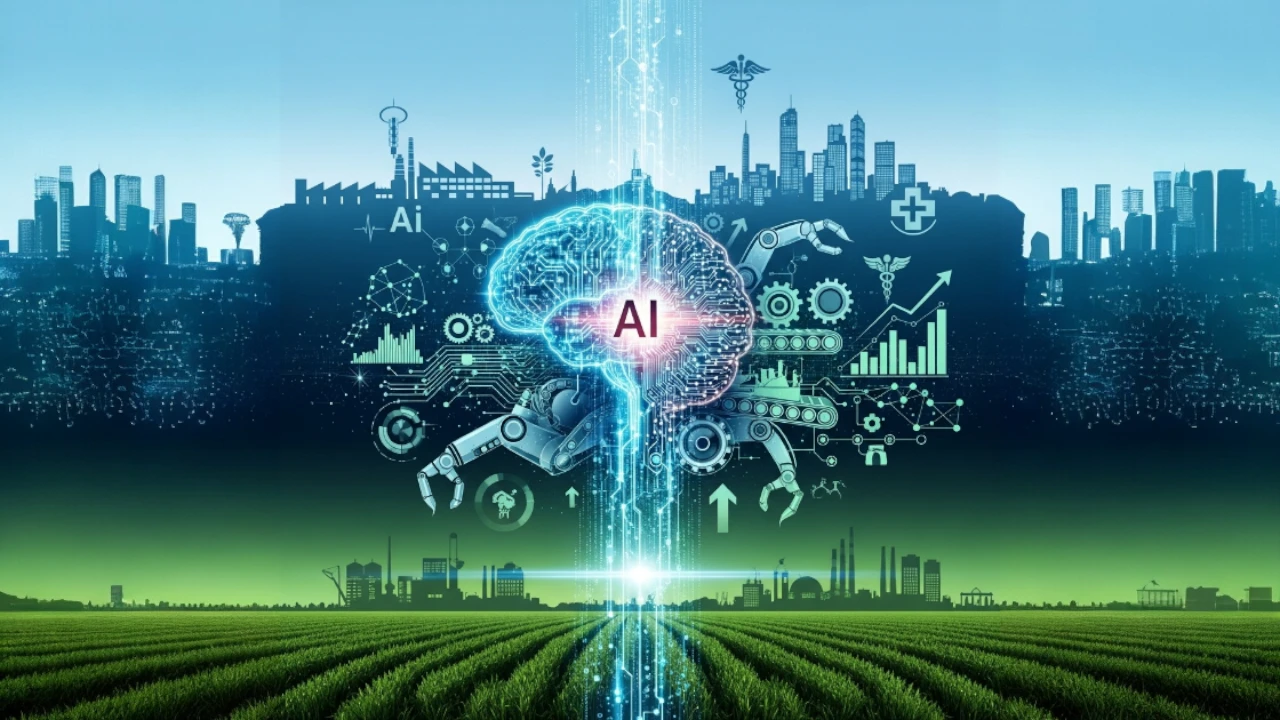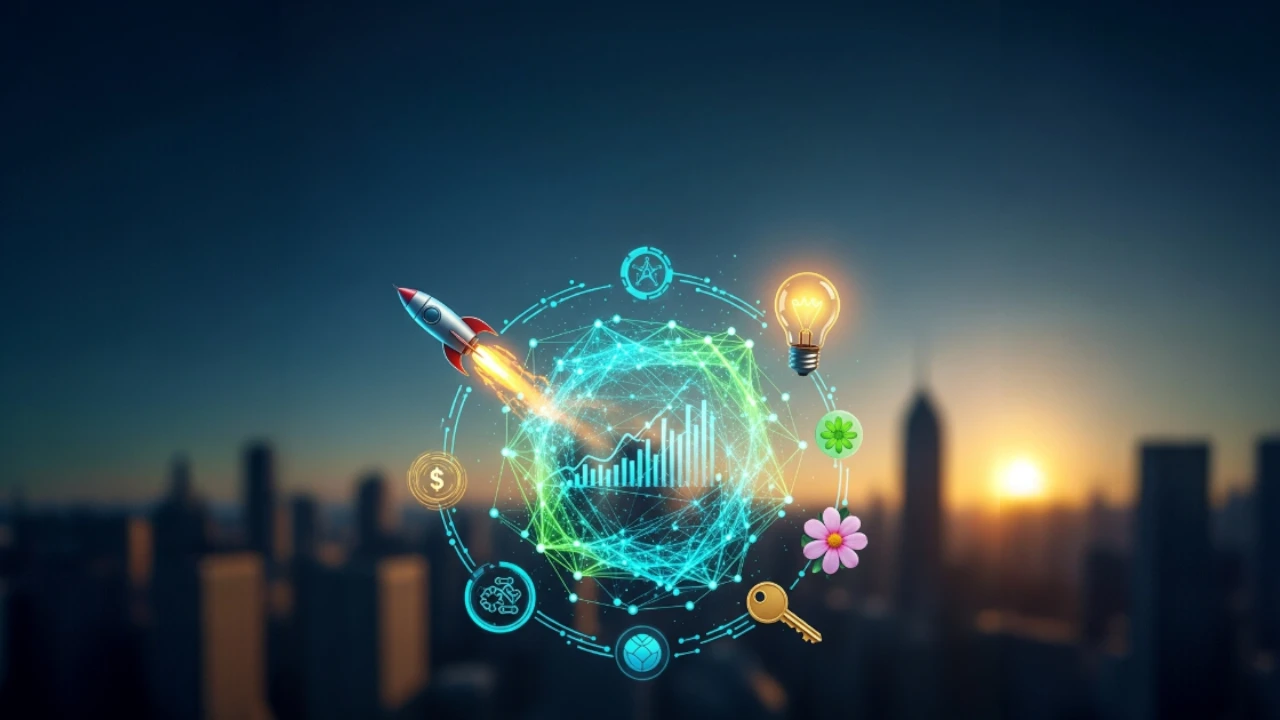Artificial Intelligence (AI) is no longer a futuristic concept; it’s rapidly transforming businesses across all sectors. From automating routine tasks and improving customer experiences to driving innovation and boosting productivity, AI is revolutionizing the way we work and interact with the world.
1. Automating Repetitive Tasks
One of the most significant ways AI is transforming businesses is by automating repetitive and time-consuming tasks.
- Robotic Process Automation (RPA): RPA software can automate mundane tasks like data entry, invoice processing, and customer service inquiries, freeing up human employees for more strategic and creative work.
- AI-powered assistants: Virtual assistants powered by AI can schedule meetings, answer emails, and even draft basic reports, significantly increasing employee productivity.
2. Enhancing Customer Experience
AI is revolutionizing customer experiences by providing personalized and efficient service.
- Chatbots: AI-powered chatbots can provide instant customer support, answer frequently asked questions, and guide customers through complex processes.
- Personalized recommendations: AI algorithms can analyze customer data to provide personalized product recommendations, improving customer satisfaction and1 driving sales.
- Sentiment analysis: AI can analyze customer feedback from social media, reviews, and surveys to understand customer sentiment and identify areas for improvement.
3. Driving Innovation and Product Development
AI is fueling innovation across industries by enabling businesses to develop new products and services.
- Predictive analytics: AI algorithms can analyze vast amounts of data to predict future trends, identify potential risks, and inform strategic decision-making.
- Drug discovery: AI is accelerating drug discovery by analyzing complex molecular structures and identifying potential drug candidates.
- Personalized medicine: AI is enabling personalized medicine by analyzing patient data to develop customized treatment plans.
4. Improving Decision Making
AI provides businesses with valuable insights and data-driven recommendations to improve decision-making.
- Business intelligence and analytics: AI-powered tools can analyze large datasets to identify trends, patterns, and anomalies, providing valuable insights for business leaders.
- Risk management: AI can help identify and mitigate potential risks, such as fraud, cyberattacks, and supply chain disruptions.
- Predictive maintenance: AI can predict equipment failures and schedule maintenance proactively, reducing downtime and improving operational efficiency.
5. Boosting Productivity and Efficiency
AI is significantly boosting productivity and efficiency across various business functions.
- Process optimization: AI can analyze business processes and identify areas for improvement, leading to increased efficiency and reduced costs.
- Supply chain optimization: AI can optimize supply chains by predicting demand, improving inventory management, and streamlining logistics.
- Faster time to market: AI can accelerate product development cycles by automating tasks and providing valuable insights into market trends.
6. Enhancing Cybersecurity
AI is playing a crucial role in enhancing cybersecurity by detecting and preventing cyber threats.
- Threat detection and prevention: AI algorithms can analyze network traffic, identify suspicious activity, and detect and prevent cyberattacks in real-time.
- Fraud detection: AI can identify fraudulent transactions and prevent financial losses.
- Incident response: AI can help organizations respond quickly and effectively to cyberattacks by automating incident response processes.
7. Personalizing Marketing Campaigns
AI is enabling businesses to personalize their marketing campaigns for maximum impact.
- Targeted advertising: AI can analyze customer data to identify the most relevant audiences for marketing campaigns.
- Personalized marketing messages: AI can personalize marketing messages based on individual customer preferences and behavior.
- Measuring campaign effectiveness: AI can track the performance of marketing campaigns and provide insights for optimization.
8. Improving Employee Productivity
AI is empowering employees to work more efficiently and effectively.
- Intelligent automation: AI can automate routine tasks, freeing up employees to focus on more strategic and creative work.
- Skill development: AI-powered tools can provide personalized learning recommendations to help employees develop new skills and advance their careers.
- Improved communication and collaboration: AI-powered tools can facilitate communication and collaboration among team members, regardless of location.
9. Revolutionizing Healthcare
AI is transforming the healthcare industry by improving patient outcomes and reducing costs.
- Disease diagnosis and treatment: AI-powered tools can assist doctors in diagnosing diseases, developing personalized treatment plans, and predicting patient outcomes.
- Drug discovery: AI is accelerating drug discovery by analyzing complex molecular structures and identifying potential drug candidates.
- Remote patient monitoring: AI-powered devices can monitor patient health remotely, allowing for early detection of health issues and improved patient care.
10. Driving Economic Growth
AI is driving economic growth by creating new jobs, increasing productivity, and fostering innovation.
- Job creation: While some jobs may be automated, AI is also creating new jobs in fields like data science, machine learning, and AI engineering.
- Increased productivity: AI is boosting productivity across industries, leading to increased economic output.
- Innovation and economic growth: AI is fueling innovation and driving economic growth by enabling businesses to develop new products and services, and explore new markets.
Conclusion
AI is rapidly transforming businesses across all sectors, from automating tasks and improving customer experiences to driving innovation and boosting productivity. By embracing AI technologies and leveraging their potential, businesses can gain a competitive advantage, improve their bottom line, and thrive in the digital age.
FAQs
- What are the ethical considerations of using AI in business?
- Data privacy and security
- Job displacement
- Algorithmic bias
- Transparency and accountability
- How can businesses prepare for the AI revolution?
- Invest in AI education and training
- Develop AI-related skills
- Embrace a data-driven culture
- Partner with AI experts
- What are the potential risks of using AI in business?
- Job displacement
- Dependence on technology
- Security vulnerabilities
- Unintended consequences
- How can businesses ensure the ethical use of AI?
- Develop and implement AI ethics guidelines
- Conduct regular audits and assessments
- Promote transparency and accountability
- What are the future implications of AI for businesses?
- Increased automation and efficiency
- Enhanced customer experiences
- New business models and revenue streams
- Increased competition and disruption


